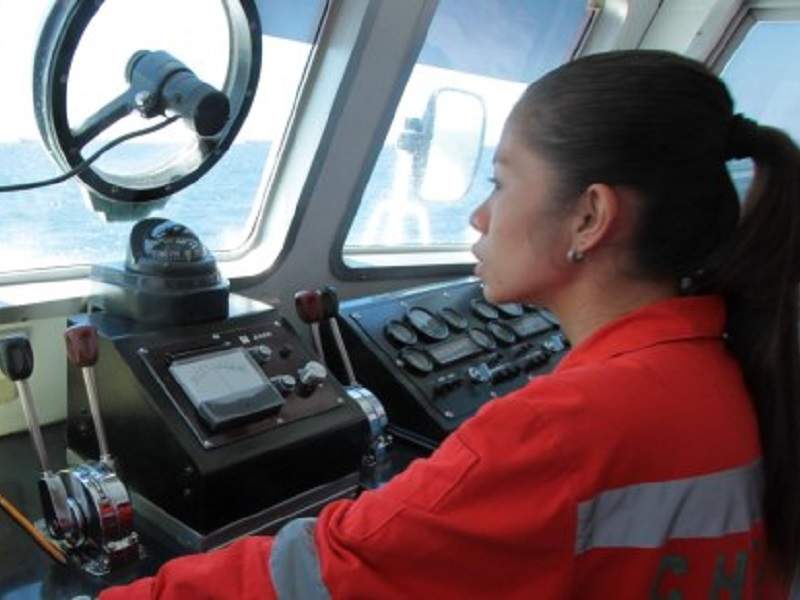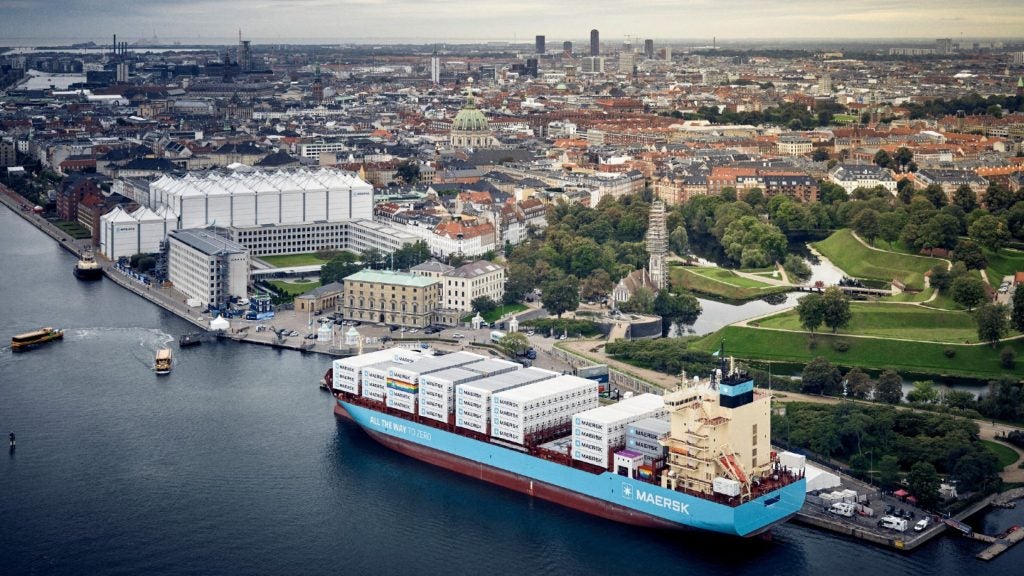
According to recent figures from the International Transport Workers’ Federation (ITF), women currently make up just 2% of the global maritime workforce, with the majority of female seafarers employed on cruise ships or passenger ferries.
As the industry prepares to face a shortage of 147,500 officers due to several factors, including an ageing workforce and lack of skills diversity, the chance of this percentage decreasing is concerning.
Although this threat has alarmed seafarers, it has in fact triggered a positive reaction across the industry. Among the loudest advocates of this cause has been Maritime UK, the organisation representing shipping, ports, marine and business services sectors across the country.
Earlier in June, Maritime UK signed a ‘Women in Maritime’ pledge, which followed the creation of a ‘Women in Maritime Taskforce’ promoting maritime activities as a career vocation for women and aiming to tackle gender inequality in maritime.
The organisation invited industry stakeholders to sign the pledge and join the Taskforce, which focuses on developing solutions to increase the number of women in senior roles across several industries. At the time of writing, over 50 businesses have joined the pledge.
The Taskforce and its signatories are now collaborating on the development of a charter, which will be launched in the autumn.
How well do you really know your competitors?
Access the most comprehensive Company Profiles on the market, powered by GlobalData. Save hours of research. Gain competitive edge.

Thank you!
Your download email will arrive shortly
Not ready to buy yet? Download a free sample
We are confident about the unique quality of our Company Profiles. However, we want you to make the most beneficial decision for your business, so we offer a free sample that you can download by submitting the below form
By GlobalDataWe asked members of the Taskforce and signatories of the pledge for their opinion on gender inequality in maritime and to explain why they joined the initiative.
Iain Mackinnon, secretary of the Maritime Skills Alliance:
We signed the Women in Maritime Pledge because we want to see women represented properly in the industry, right across it, at all levels, and in all roles, and also treated properly; bad behaviour has been tolerated for far too long, and it must stop.
The economic argument is compelling. In almost every job in the industry now we need brains, not brawn. And brains are equally distributed between men and women. So why do we employ so few women, and so very few in top jobs?
We will compete successfully in an ever more competitive world marketplace if we recruit and nurture talent wherever we find it, and put aside the assumptions of the past about what talent looks like.
Putting these concerns, and these ambitions, firmly on the industry’s agenda is the first step – which is why the pledge, and the full charter which will follow in the autumn, matter. As to concrete actions, we’re part of the Women in Maritime Taskforce, which is working to turn these high-level commitments into effective action.
Bridget Hogan, director of publications and membership at The Nautical Institute:
The Nautical Institute believes vessels will be safest when crewed by the best qualified and experienced staff. It is illogical to exclude half the world’s population from these tasks as the other half of the population does not have a monopoly of these skills.
The Institute has signed the Women in Maritime Taskforce pledge as it believes in equal treatment for all seafarers. It is against outright prejudice which is faced by so many female seafarers today.
Reforms to improve the conditions female seafarers serve under will help the whole industry become more efficient, safer and more profitable, as the person best suited to the job is selected.
A spokesperson from the Port of Milford Haven:
We are proud to be supporting Maritime UK’s Women in Maritime campaign and have signed the pledge to show that we are committed to supporting greater gender balance within our organisation and the industry as a whole. Whilst we as a port can take action to improve inclusivity by promoting the sector to women, it requires a wider collective approach to facilitate greater positive change. We are looking forward to tapping into the resources being provided by Maritime UK over the coming months.
Sarah Dhanda, chief officer for membership and services at British Marine:
The UK Government has challenged the maritime industry to increase the number of women in it and to ensure equality in the opportunities open to them. British Marine is committed to working with its membership to achieve this across its footprint – in the leisure marine, superyacht and small commercial marine sectors. Through its own initiatives, like ‘Women in Marine’, which was launched a few years ago to promote women in the industry, and as part of Maritime UK’s ‘Women in Maritime Taskforce’ and a signatory of the pledge, British Marine is endeavouring to encourage more women to consider the wide range of roles open to them across the industry.
There are huge opportunities for women throughout the sector, given that the UK marine and maritime industry has a well-documented skills gap.
British Marine’s priorities, working alongside partners in the industry like Maritime UK, are to make sure that as well as providing promotional opportunities for women already in the industry, we also work with our member companies and those women who have been successful, to mentor and provide support to those just starting out in the industry and those considering a role in marine.
Andrew Moffat, chief executive of the Port of Tyne:
Companies that embrace workplace diversity and inclusion as a source of growth and will perform better than those that don’t.
We’re pleased to join so many companies from across the industry taking this seriously, which will mean we have a far greater positive impact on the whole sector.
David Dingle CBE, chairman of Maritime UK:
I welcome this new Taskforce and look forward to its recommendations. The entire maritime sector needs to do much more to address gender imbalance.
Just looking at the Merchant Navy, the ITF estimates that women make up only 2% of the world’s maritime workforce, and those figures are replicated here in the UK, too.
Of the 14,350 officers in our country, only 3% are women. Only 4% of our technical officers are women. Of the 6,500 engine officers, only 1% are women. It means that talented women could be missing out on careers in which they could best use those talents.
Maritime UK will be leading by example, too, and urging members to nominate women leaders to sit on the Board.
Nusrat Ghani MP, the UK Government’s Maritime Minister:
I am delighted to see Maritime UK taking action to attract more women into our maritime industries, and I welcome this Taskforce as an important first step.
In the autumn, the government challenged maritime leaders, businesses and colleges to find ways of increasing the number of women in the sector, and it is great to see them respond in this way.
There is a fantastic wealth and breadth of career opportunities in maritime, and I am determined to see more women accessing these.
Sue Terpilowski, chair of the Women in Maritime Taskforce:
The need for fairness, equality and inclusion is clearer than ever and the maritime sector must embrace diversity because it’s the right thing to do.
Equally, there is a strong business case for action. The Organisation for Economic Co-operation and Development has estimated that equalising the role of men and women in the labour market could increase GDP by 10% by 2030.
There are women of all ages and abilities wanting to be a part of our maritime future and we must make sure we don’t waste any more time in not addressing this issue.




